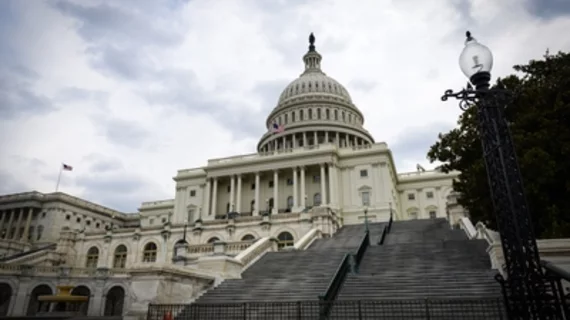MITA calls out Trump administration for proposed tariffs on Chinese medical imaging devices
The Medical Imaging and Technology Alliance (MITA) expressed concerns about tariffs on some $50 billion of Chinese goods at a June 20 Senate Finance Committee with the U.S. Department of Commerce Sec. Wilbur Ross. The group argued it could pose negative consequences to the U.S. healthcare sector, particularly the medical imaging device industry.
Executive Director of MITA Patrick Hope expressed that the proposed tariffs could impede patient access to care and cost the medical device industry potentially billions of dollars, according to a MITA release .
“We have serious concerns the proposed tariffs will impede patient access to medical innovation by taxing inter-company transfers, wherein a company will manufacture component parts in China before shipping them to the U.S. for final assembly and export and slowdowns in imaging research and development impedes patient access to higher quality health care over time," Hope said. "Further, under the proposed tariff environment, rather than immediately halting component manufacturing operations in China, which is unfeasible with a mature supply chain, companies will likely evaluate the most cost-effective locales for final assembly operations, including outside of the United States.”
Hope also called out U.S. lawmakers directly, explaining that the current tariff proposal runs "counter to the idea of putting American patients and healthcare workers first.”
“Rather than make it more difficult for our member companies to do business in America, elected officials should be supporting the United States as the current global leader in medical imaging innovation," Hope said.

